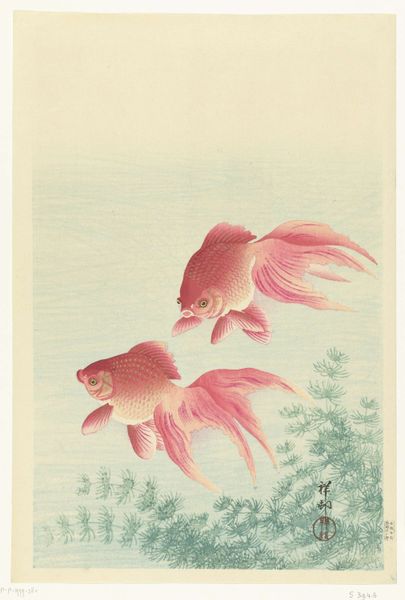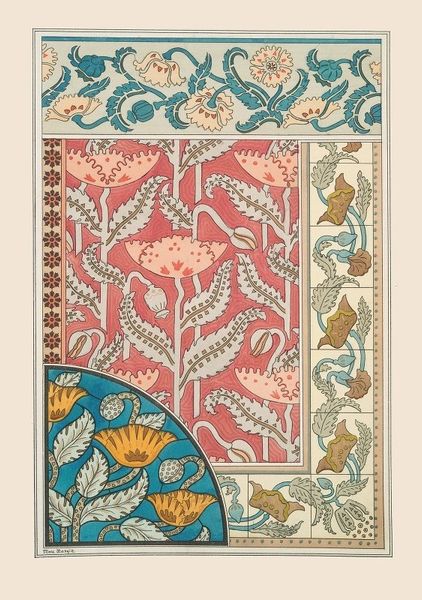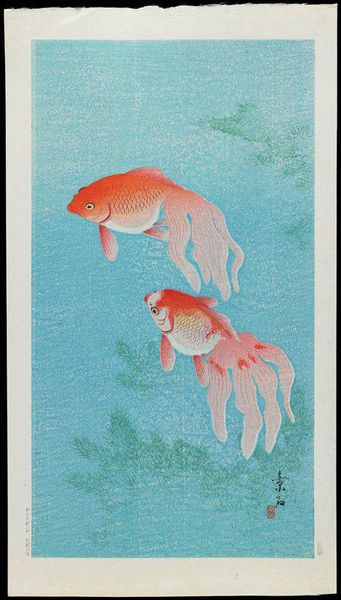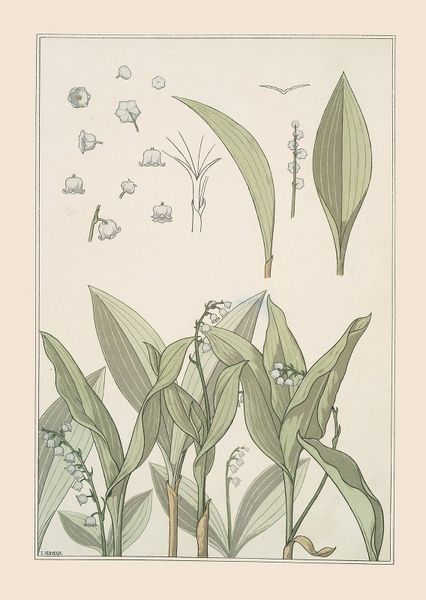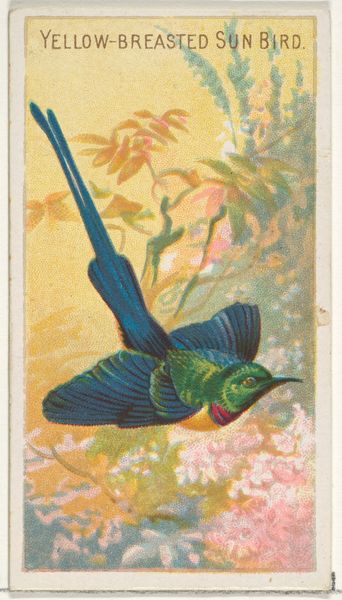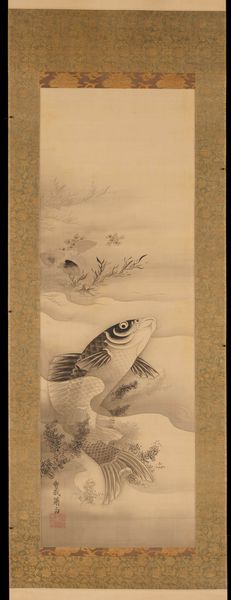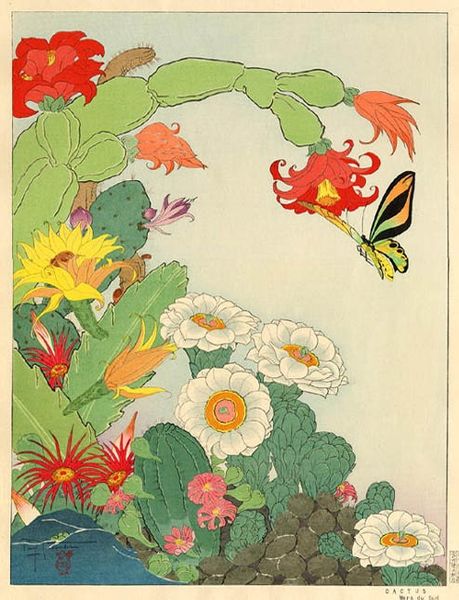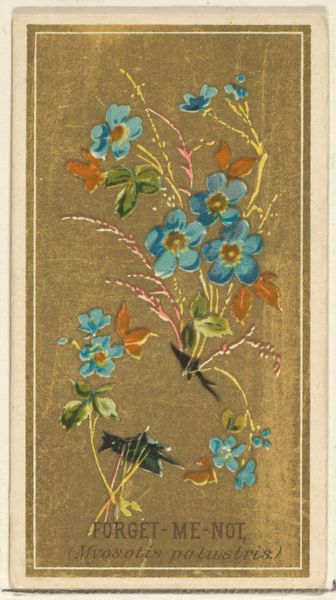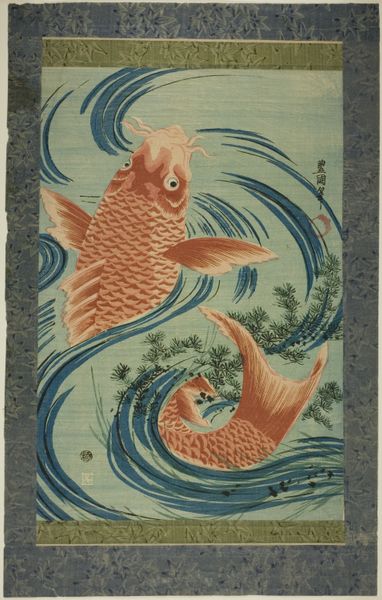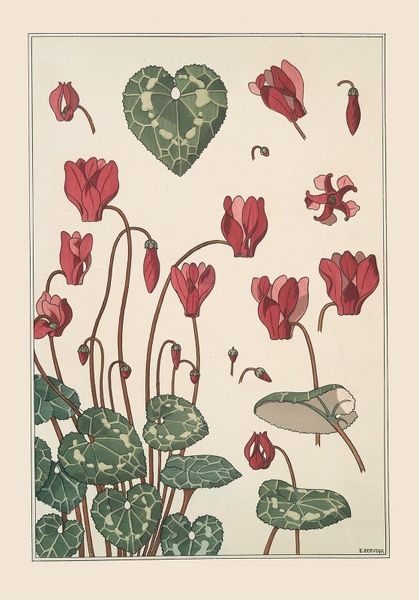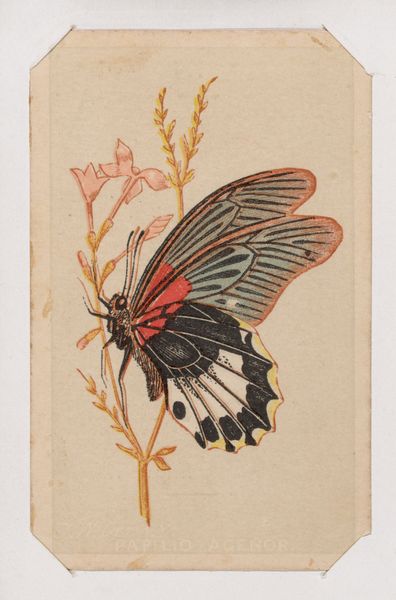
painting, watercolor
#
organic
#
art-nouveau
#
painting
#
watercolor
#
organic pattern
#
realism
Copyright: Public Domain: Artvee
Curator: This is Maurice Pillard Verneuil’s "Rouget," a watercolor painting from 1897, showcasing a design typical of the Art Nouveau period. Editor: Ah, it feels like peering into a fantastical, shimmering fish tank! The way the fish glide amongst the seaweed, it's dreamlike. Reminds me a little of old botanical illustrations, but with a definite wink. Curator: Verneuil was quite involved in the decorative arts scene, and that certainly shows here. We see a flattened perspective, which intentionally rejects traditional illusionism in favor of a more stylized composition. He created patterns often drawing upon nature. Editor: Those spiky fronds, they're a bit Dr. Seuss, aren't they? And the fish, so serious with their delicate fins, like lace wings! What’s so striking is how decorative everything becomes, almost obscuring the boundary between nature and design. Curator: Precisely. The painting appears to embrace the Art Nouveau fascination with organic forms. This idea positions nature as not merely something to be depicted, but also as an active force that informs art, design, and social consciousness, especially as people during the Industrial Revolution searched for refuge in what they had lost. Editor: Thinking about our role in nature...makes one pause and wonder if we are being sensitive caretakers! What about you? Do those fierce little fish trigger any deep thoughts for you? Curator: Beyond our ecological concerns, the piece speaks to issues of power, the hierarchy between humans and the natural world. Consider that humans named the fish, organized it into schools, categorized it in countless academic articles. Who decided? Editor: Oh! Heavy! But you are so right... It’s wild how much control we believe we have over everything, even something as fluid and unknowable as the sea. It's beautiful though, how it makes us see the world and, more importantly, our place in it. Thank you, Maurice, for that splash of color that triggers an emotional riptide. Curator: Thank you for allowing me to look at the history and how we frame that in relation to social events and schools of thought. "Rouget," may its patterns, forms, and politics of its era stay with us!
Comments
No comments
Be the first to comment and join the conversation on the ultimate creative platform.
